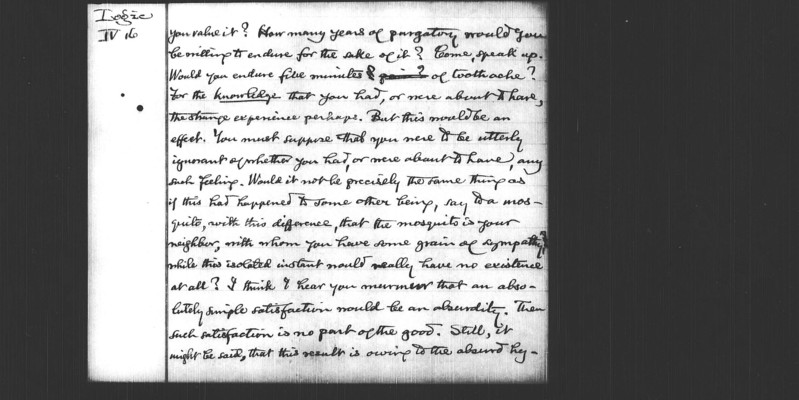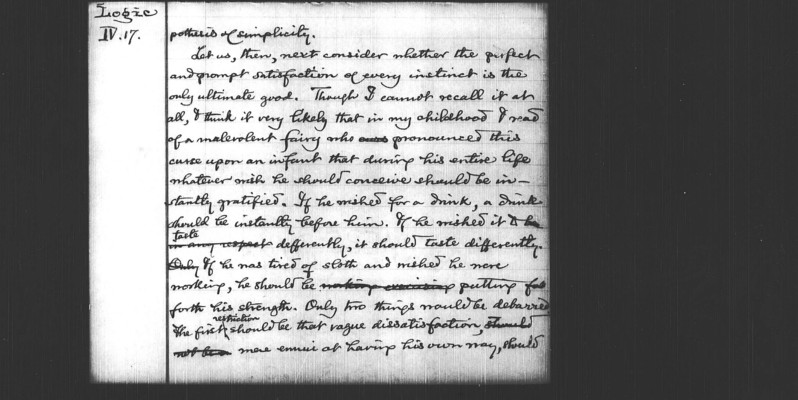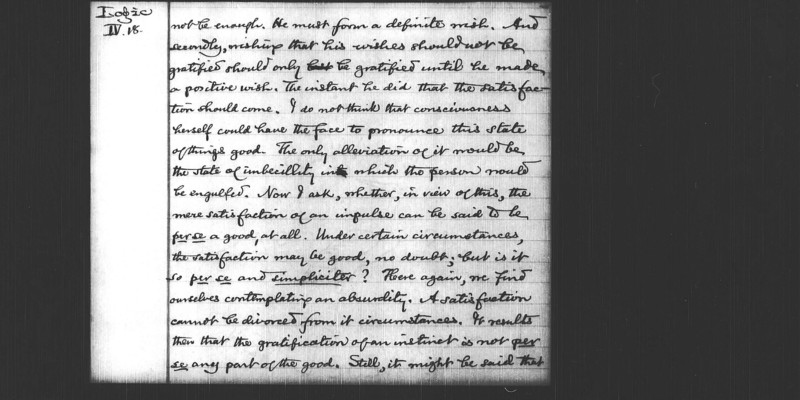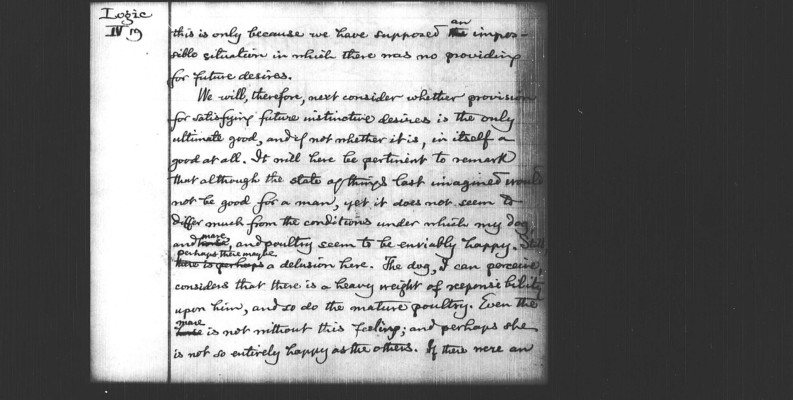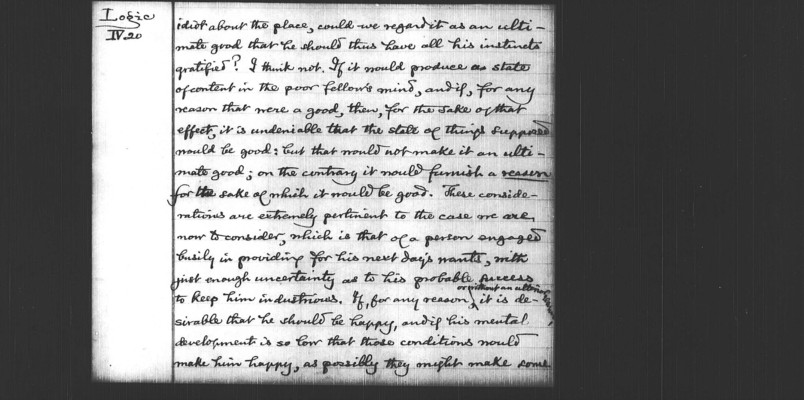Pages
16
you value it? How many years of purgatory would you be willing to endure for the sake of it? Come speak up. Would you endure five minutes of toothache? For the knowledge that you had or were about to have the strqange experience perhaps. But this would be an effect. You must suppse that you were to be utterly ignorant of whether you had or were about to have any such feeling. Would it not be precisely the same thing as if this had happened to some other being say to a mosquito with this difference that the mosquito is your neighbor with whom you have some grain of sympathy? While this isolated instant would really have no existence at all? I think I hear you murmur that an absolutely simple satisfaction would be an absurdity. Then such satisfaction is no part of the good. Still it might be said that this result is owing to the absurd hy-
17
Logic IV. 17
pothesis of simplicity. let us, then, next consider whether the perfect and prompt satisfaction of every instinct is the only ultimate good. Though I cannot recall if at all, & think of very likely that in my childhood & read of a malevolent fairy who pronounced this curse upon an infant that during his enture life whatever wish he should conceive should be instantly before him. If he wished is for a drink, a drink should be instantly before him. If he wished it to taste differntly, it should tast differently. If he was tired of sloth and wished he were working, he should be putting [?] forth his strength. Only two things would be debarred. The first restriction should be that vague dissatisfaction, were [ennui?] of having his own way, should
18
not be enough. He must form a definite wish. And secondly, wishing that his wishes should not be gratified should only be gratified until he made a positive wish. The instant he did that the satisfaction should come. I do not think that consciousness herself could have the face to pronounce this state of things good. The only alleviation of it would be the state of imbecillity in which the person would be engullfed. Now I ask, whether, in view of this, the mere satisfaction of an impulse can be said to be per se a good, at all. Under certain circumstances the satisfaction may be good, no doubt, but is it so per se and simpliciter? Here again, we find ourselves contemplating aan absurdity. A satisfaction cannot be divorced from its circumstances. It results then that the gratification of an instinct is not per se any part of the good. Still, it might be said that
19
Logic IV 19 this is only because we have supported an impossible situation in which there was no providing for future desires. We will, therfore, next consider whether provision for satisfying future instinctive desires is the only ultimate good, and if not whether it is, in itself a good at all. It will here be pertinent to remark that although the state of things last imagined would not be good for a man, yet it does not seem to differ much from the condition under which my dog, and mare, and poultry seem to be enviably happy. Still perhaps there maybe a delusion here. The dog, I can perceive considers that there is a heavy weight of responsibilty upon him, and so do the mature poultry. Even the mate is not without this feeling; and perhaps she is not so entirely happy as the other. If there were an
20
Logic IV 20
idiot about the place, could we regard it as an ultimate good that he should thus have all his instincts gratified? I think not. If it would produce a state of content in the poor fellow's mind, and if, for any reason that were a good, then, for the sake of that effect, it is undeniable that the state of things supposed would be good: but that would not make it an ultimate good; on the contrary it would furnish a reason for the sake of which it would be good. These considerations are extremely pertinent to the case we are now to consider, which is that of a person engaged busily in providing for his next day's wants, with just enough uncertainty as to his probably success to keep him industrious. If, for any reason, or without an ultimate reason it is desirable that he should be happy, and if his mental developent is so low that those conditions would make him happy, as possibly they might make some
